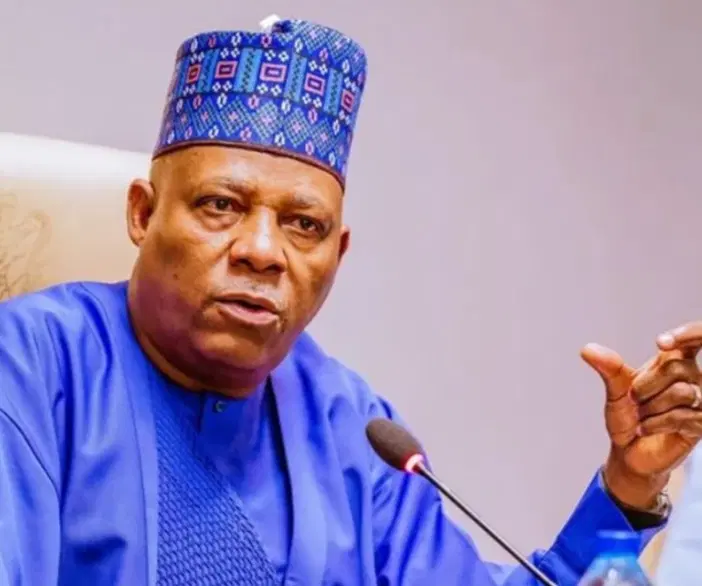Vice President Kashim Shettima announced that the Federal Government plans to integrate technology into Nigeria’s education infrastructure to enhance learning outcomes. He made this statement during a meeting with the World Bank Nigeria team at the Presidential Villa in Abuja on Wednesday.
Shettima emphasized that this initiative aims to tackle human capacity and resource challenges in the education sector, with a commitment from President Bola Tinubu to drive transformative change in the country.
Key Points from Shettima’s Statement:
- Commitment to Technological Integration: Shettima assured that President Tinubu is dedicated to leveraging technological advancements to improve Nigeria’s education system. He cited the global technological evolution as an opportunity to add significant value to the country’s education infrastructure.
- Inspiration from Global Success: Shettima referenced India’s use of KYAN smart class solutions, which has successfully educated 50,000 pupils in rural areas. He suggested that adopting similar technological innovations could revolutionize Nigeria’s education system.
- Holistic Approach to Education Reform: The Vice President advocated for a comprehensive education reform plan that includes upgrading infrastructure, enhancing teacher training, and implementing technology. He stressed the need for immediate action to address existing gaps in the education system.
- Call for Stakeholder Cooperation: Shettima emphasized that while the federal government is committed to driving these changes, cooperation from all stakeholders, including state governors, is crucial for successful transformation.
World Bank’s Focus:
Earlier, Dr. Ndiame Diop, World Bank’s Country Director for Nigeria, outlined the bank’s focus on enhancing governance, health, and education across Nigeria. Diop highlighted the bank’s projects—HOPE-Governance, HOPE Primary Health Care, and HOPE Basic Education—as part of a broader effort to reform governance processes, primary healthcare, and education, with a focus on human capital development.
“The HOPE series of projects are designed to provide result-based financing at the sub-national levels, aimed at improving governance, healthcare, and educational facilities,” Diop explained.
Shettima’s remarks reflect a commitment to leveraging technology and comprehensive reform to address Nigeria’s educational challenges and improve overall learning outcomes.



